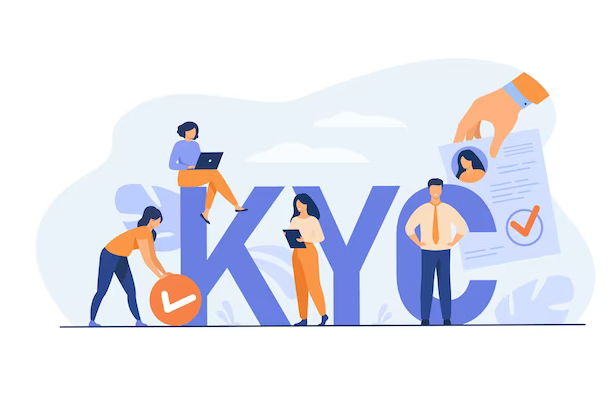Companies employ the "Know Your Customer" (KYC) process to confirm the identities of their clients or consumers. Several businesses in sectors like banking, finance, healthcare, and even e-commerce use KYC. KYC checks that clients are whom they say they are to stop fraud, money laundering, and other unlawful actions.
What is KYC?
KYC Verification is crucial for consumers since it protects personal data against identity theft. Companies may ensure that no one else can register accounts or complete transactions in their names by confirming their identities. By guaranteeing that the businesses that customers do business with are legitimate and reliable, E- KYC also serves to protect consumers.
KYC is crucial for businesses for a variety of reasons. First, it assists them in adhering to regulatory regulations, which may be a mandate under the law. Fines, legal action, and reputational harm may come from a company failing to follow KYC laws. Second, KYC aids businesses in defending themselves against fraud and other unlawful acts. Businesses may ensure they are not unintentionally aiding criminal activity by checking the identification of their consumers. Finally, E- KYC can assist businesses in developing client trust. Businesses can cultivate a devoted customer base and set themselves apart from rivals by demonstrating that they take customer privacy and security seriously.
Ultimately, KYC is a crucial procedure for both customers and businesses. Businesses can safeguard themselves from fraud and other unlawful actions, meet regulatory obligations, and gain their clients' trust by confirming their consumers' identities. KYC ensures that customers transact with reputable businesses and protects their personal information.
Why Consumers and Companies Need KYC
For several reasons, KYC (Know Your Customer) is crucial for consumers and businesses.
Fraud Prevention: By confirming the identities of their consumers, KYC enables businesses to thwart fraudulent operations. It aids in preventing financial loss brought on by fraudulent transactions for both the business and the customer.
Compliance: To stop money laundering, terrorism financing, and other criminal acts, KYC is frequently required by legislation and regulatory agencies in different industries, including banking and finance. Companies can avoid financial and legal repercussions by adhering to KYC standards.
Trust and Reputation: KYC aids in the development of corporate trust and a positive reputation. Businesses can gain the confidence of their clients by exhibiting a dedication to security and privacy. It can result in recurring business and favourable evaluations.
Personal Data Protection: By ensuring that only authorized individuals have access to sensitive information, KYC helps secure consumers' data. It can aid in reducing the risk of fraud and identity theft.
Better Customer Experience: By expediting the account opening process and removing the need for recurrent verification, KYC can also improve client experience. Customer satisfaction can increase, and customer annoyance can be decreased.
In conclusion, KYC is crucial for customers and businesses since it guards against fraudulent activity, ensures regulatory compliance, establishes trust and reputation, safeguards personal data, and enhances customer experience.










No comments:
Post a Comment